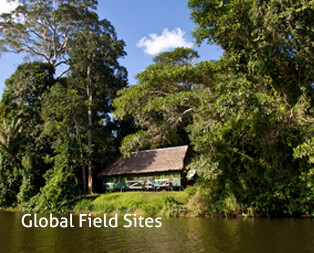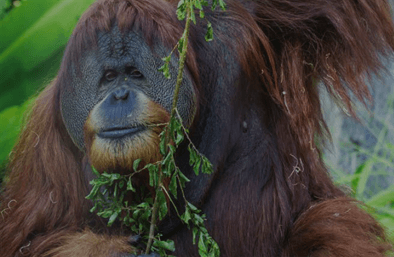Habitat Fragmentation Imperils Madagascar’s Large-bodied Lemurs
Study Indicates These Forest-dwelling Primates Now Face Greater Risk of Extinction
A new study published this week (Feb. 3, 2020) in the American Journal of Primatology highlights the critical need for conservation efforts to protect lemurs on Madagascar, an island off the southeast coast of Africa that is rapidly being deforested. This unique ecosystem is home to more than 110 species of lemurs, but approximately 95 percent are threatened with extinction, making them the most vulnerable mammal group on Earth. The lead author of the study is Timothy Eppley, Ph.D., a postdoctoral associate at the San Diego Zoo Institute for Conservation Research, who explained that results of this research underscore the urgency of reforestation and other protective measures.
The study looked at the diet and home range size of 32 species of large-bodied diurnal lemurs. It examined how a fruit-based diet, a leaf-based diet and a mixed diet influenced lemur species distribution. Though some variations related to the species’ dietary preferences and average home range sizes exist, in general, habitat fragmentation was found to have a negative effect on lemur populations.
“Lemur species categorized as having mixed diets showed greater flexibility in terms of distribution, compared to nearly exclusive folivores and frugivores,” Eppley noted. “This is in contrast to the historical perception that leaf-eating primates are more adaptable or flexible, given that their food resources are typically more abundant—potentially meaning that folivores are at greater risk of extinction than previously thought.”
Eppley was joined in the research by colleagues from Italy’s National Research Council, the University of California, Los Angeles and Oxford Brookes University. The researchers concluded that in addition to the importance of understanding how lemurs may respond to the effects of climate and human impact on their habitat, on-the-ground conservation action is necessary to ensure the survival of lemurs for future generations.
Large-bodied lemurs are key seed dispersers in Madagascar and are crucial for the regeneration of native plants. Their disappearance would likely have catastrophic consequences in their habitat, researchers said.














